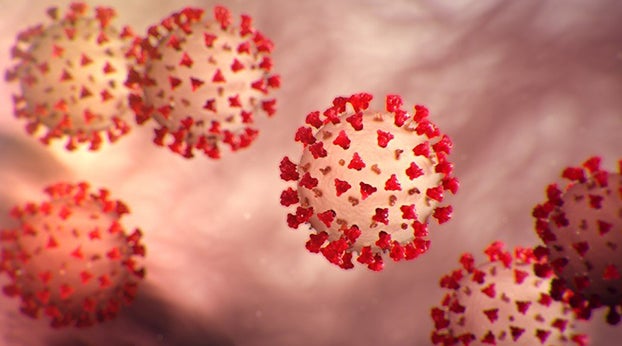Helpful tips as COVID activity picks up in Kentucky
Published 4:50 pm Tuesday, August 27, 2024
|
Getting your Trinity Audio player ready...
|
By Takaaki Kobayashi, M.D.
UK HealthCare’s Infection Control and Prevention department
Recent headlines swirling about an uptick in local COVID-19 cases might bring back bad memories.
According to a careful monitoring of hospital admissions, COVID-19 activity has picked up in recent weeks in Kentucky. There’s no need to panic – but it may be time for a quick refresher.
Our understanding of COVID-19, the preventative measures we can take against it and the effective treatment options available to those who get the disease have only increased with time.
Newest vaccine imminent
Like other viruses, the virus behind COVID has continued to evolve and the dominant strains infecting many Americans today are of Omicron lineage. The newest vaccine, developed to specially target the new dominant variants, should start to roll out in late August and September.
It’s recommended that everyone six months of age or older get the shot. Protection against COVID-19 from previous vaccines or previous bouts with COVID-19 decrease over time.
Getting the vaccine doesn’t guarantee you won’t become ill. However, the chances of being hospitalized or dying from the disease decreases significantly.
Consider also getting your flu shot at the same time as your COVID-19 vaccine. Flu season is right around the corner. Older adults and pregnant people might also consider getting a respiratory syncytial virus (RSV) vaccine.
Other recommendations
A COVID summer surge was expected but the severity is still to be determined. With school starting, it’s important that parents and students remember proper hand-washing techniques and to stay home if you’re feeling sick. Additionally, wearing a mask can help lower the risk of virus transmission by reducing the spread of the virus from infected individuals and protecting wearers from inhaling infectious particles from others.
Those precautions will help protect against COVID-19 plus other respiratory viruses that tend to kick around crowded environments like classrooms.
As of March, the Centers for Disease Control and Prevention recommends that those suffering from respiratory virus symptoms — cough, runny nose, sore throat, headache, etc. — stay home and away from others. You can resume normal activities once symptoms have improved and you’re fever free for at least 24 hours.
It’s important to note that you may still spread the virus that made you sick, even if you’re feeling better. Over the next 5 days, take extra precautions such as improving air circulation, practicing good hygiene, wearing masks, and keeping a safe distance from others.
Other common questions about COVID
Is Paxlovid still effective against the newer strains of COVID?
- Paxlovid remains effective against the new COVID variants. It is only recommended for people at high risk for severe illness and only within 5 days of symptom onset.
How severe is illness with the new variant?
- The current variants are more contagious than earlier strains, but they don’t seem to cause more severe illness.
If I already had COVID-19 and recovered, do I still need to get a COVID-19 vaccine?
- Yes. Getting a COVID-19 vaccine after you recover provides added protection.





